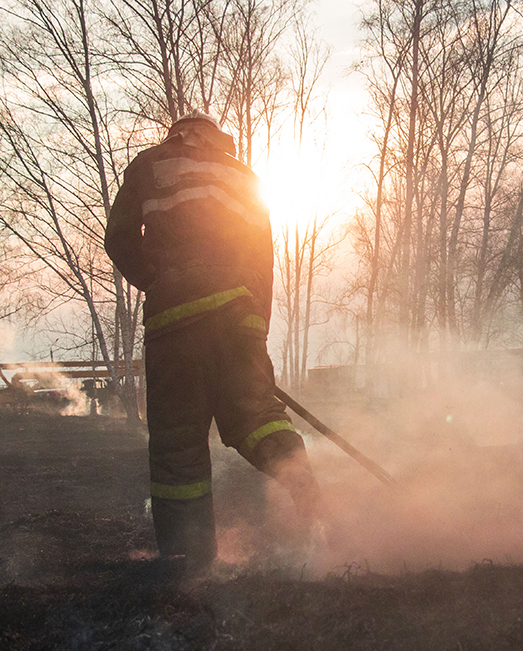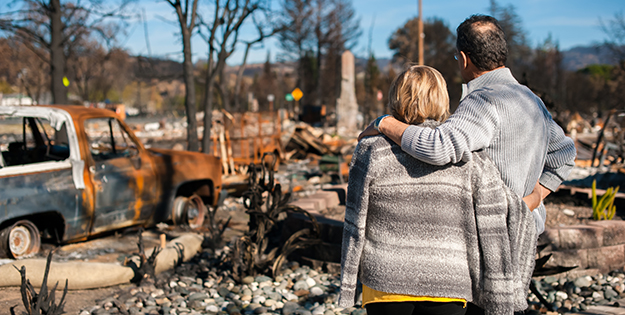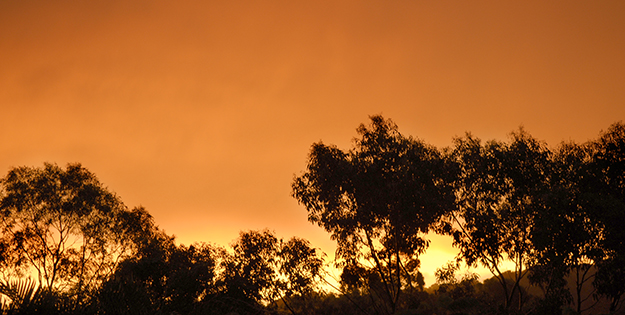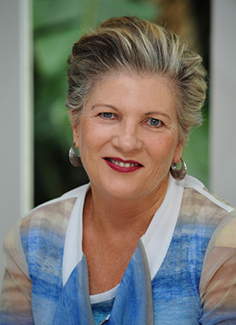Community
Copyright@ Australian Catholic University 1998-2026 | ABN 15 050 192 660 CRICOS registered provider: 00004G | PRV12008
Copyright@ Australian Catholic University 1998-2026 | ABN 15 050 192 660 CRICOS registered provider: 00004G | PRV12008

A young mother recounts the moment she fled with her toddler as a fierce bushfire threatened their family home in southeast Queensland.
“I had 10 minutes to grab our two-year-old daughter and our dogs, throw them in the car and get out,” she told Sky News in late 2019.
“It was terrifying. It was dark, there were embers everywhere and [my daughter] was saying, ‘Mummy, I just want it to be daytime again’.”
In rural Victoria, another family describes the damage and destruction after a blaze tore through their property.
“The house, sheds, farm … it burnt through everything,” the father-of-four told the ABC.
“People who rang me in those first few days didn’t get much talking — just a lot of tears. It’s bloody devastating to have everything taken in one hit … all the kids’ stuff, every little keepsake, we’ve lost all that stuff.”
These are normal responses to experiencing the horror of a natural disaster, says Professor Toni Noble, a researcher at ACU’s Institute for Positive Psychology and Education.
“It’s completely natural to have these strong emotions when you face something as frightening as your home being in the path of a bushfire,” she says.
It’s what happens in the aftermath that can have a profound emotional impact on those around you — especially young children.
“Once the fires are over and your family is safe, it’s very important to instil a sense of calm and a sense of hope,” says Noble, a leading educational psychologist with expertise in wellbeing and resilience.
“Emotions are contagious, whether they’re positive or negative, and if the mum and dad or the teachers are simply not coping well, then the kids will think, ‘Well, there’s still something to be worried about’.”
Professor Noble has seen firsthand how communities respond to such devastating disasters.
Ten years ago, the Victorian Government commissioned her and her colleague Professor Helen McGrath to run teacher workshops in schools affected by the Black Saturday bushfires of 2009, which took the lives of 173 people and razed some 3,500 buildings to the ground.

Teachers were first asked how the fires had affected their students. One principal described how schoolchildren were commonly on high alert: if they heard sirens, they “would start to panic and run to the windows to see if they are under threat”.
“We found that some kids were still experiencing distressing emotions,” Noble says.
“They were highly anxious, very heightened, and often something would set them off, like a hot day or the smell of smoke or the sound of a fire truck, and they’d become very anxious and clingy, wanting to be with an adult.”
On top of this traumatic stress, she observed a profound sense of loss amongst students affected by the tragedy.
“Many of them knew someone who had died in the fires, and that just rocked them completely, and others had lost homes, pets and livestock,” Professor Noble adds.
“There was an increased sense of vulnerability. No longer did they feel safe or infallible, and their whole world had changed.”
One teacher said the bushfires “…opened students’ eyes to what a disaster is. Not just something you see on TV.”
While the above might paint a disturbing picture of the impact natural disasters can have on young children, the reality is that most will recover quickly.
“Kids are incredibly resilient, and in most cases, they tend to bounce back quite naturally,” Professor Noble says.
“But it’s critical that the adults in their lives — their parents and also their teachers — actively provide a sense of hope that things will get better. This helps to normalise what has happened and gives them the support they need to manage the strong emotions they’re feeling.”
That’s not to say that young people can always be shielded from the trauma and stress associated with bushfires and the like.
Research shows that somewhere between seven and 45 per cent of children suffer depression after a natural disaster, and those who directly experience injury, bereavement or fear are more at risk.
In the aftermath of Black Saturday, one in four people in the worst affected regions still showed signs of depression and post-traumatic stress three or four years later.
Professor Noble found children generally did better in those communities that were able to swiftly return to a sense of normalcy.
“We went into places like Kinglake and Marysville, where the towns were completely wiped out by the fires, and they really struggled,” she says.
“But other schools that weren’t as badly affected, if they were able to quickly move back into routines and a sense of safety and structure, that made a huge difference.”
Professors Noble and McGrath delivered workshops to teachers from 68 primary schools in seven fire-ravaged regions of rural Victoria.
They gave educators a series of lesson plans and activities aimed at teaching children the skills of resilience and social-emotional wellbeing.
Lessons included the Bounce Back acronym: a series of coping statements based on cognitive behaviour therapy. For example, the C in ‘BOUNCE’ stands for, “Concentrate on the positives (no matter how small) and use laughter”, and the A in ‘BACK’ is, “Accept what can’t be changed (but try to change what you can first)”.
“We used each of those statements as a lesson and built literature, drama and writing activities around them, and that encouraged discussion about the fires, the emotions surrounding those events and the different ways people deal with adversity and setbacks,” says Noble, who has been delivering the Bounce Back program since 2003.
“The idea is that children can call on the relevant coping statement when they’re feeling anxious about something, and that helps them to manage strong emotions with courage. It helps them to understand that despite having experienced this devastating bushfire, there are always some positives you take from it — and this can be a very important life lesson.”

Teachers often play a crucial role in helping kids to recover from natural disasters, Professor Noble adds, as they can provide kids with an alternative adult sounding board.
“Talking about these things in a classroom setting also really helps, because the students might hear other children expressing their feelings, and that makes them think, ‘Oh okay, it’s not just me who’s had this experience, it’s not just me who’s worried and anxious’,” she says.
“It gives them a safe space to talk about their feelings without the focus explicitly being on them, so they can name the emotion and learn to manage it and use it in a positive way, to build hope and resilience.”
Teachers observed students implementing the key messages of the program— including increased positivity and confidence — during class discussions, and many found they used the skills taken from the workshops in their own lives.
“We have seen a real turnaround in the attitude and approach of several of our Year 5 and 6 students,” one teacher noted. “They are now much more optimistic and logical in their response to setbacks.”
One student said they learnt about friendship and how to be a good friend, “about managing conflict, about building a bridge and getting over things”.
Participating schools were also given parent tip sheets on emotional wellbeing and resilience, and encouraged to send them home with students.
“The thing we need to keep in mind is that how we adults respond to natural disasters directly impacts on the kids around us,” Professor Noble says.
“That’s why it’s so important to provide a sense of hope that things will get better, that things will get back to normal, and that life will go on.”
Professor Toni Noble is a leading educator and psychologist in student wellbeing and positive psychology. She is an Adjunct Professor at ACU’s Institute for Positive Psychology and Education. Find more info on the Bounce Back program.

Crisis support services can be reached 24 hours a day: Lifeline 13 11 14; Kids Helpline 1800 55 1800; Beyond Blue 1300 22 4636
Copyright@ Australian Catholic University 1998-2026 | ABN 15 050 192 660 CRICOS registered provider: 00004G | PRV12008